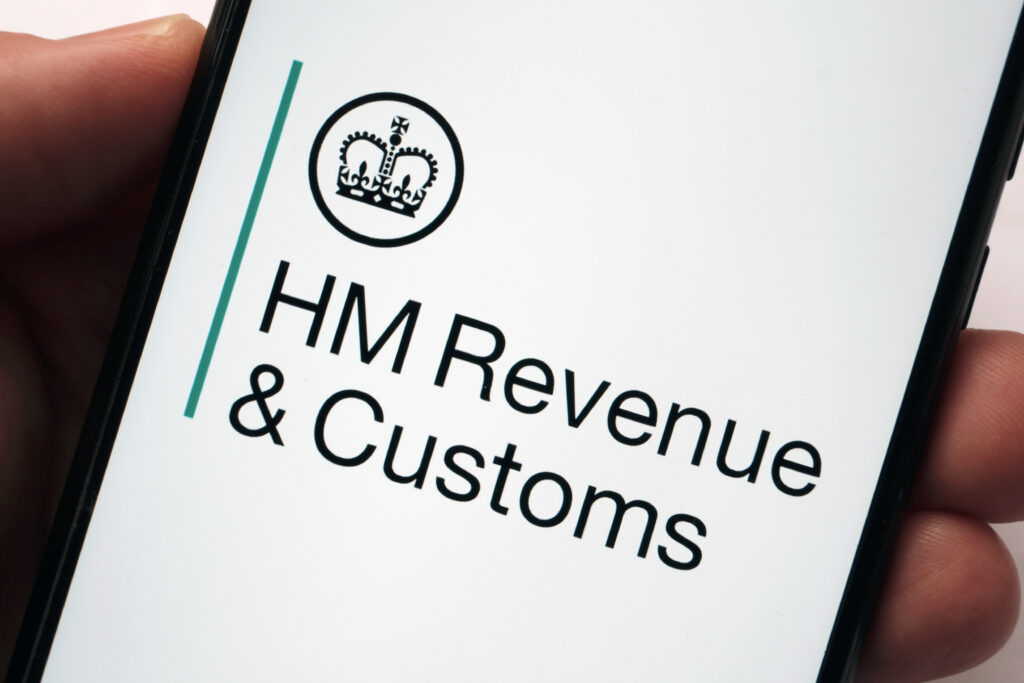Sole Trader Vs Limited Company: What's The Difference?

Deciding to break off from the traditional career ladder and start your own business can be daunting. You’re motivated by the opportunity to manage your finances and the freedom of choosing your working hours – but there’s a lot to learn along the way.
The first hurdle comes before you even take the plunge. It’s essential to determine the capacity in which you want to work for yourself. Do you want to be a sole trader, or do you want to register as a limited company? What are the differences between the two?
This guide will discuss the key features of being a sole trader vs a limited company, including their advantages and disadvantages. By the end, you should have a clear idea of both options and should be able to decide which – if any – suits you best confidently.
What is the Difference Between a Sole Trader and a Limited Company?
The most significant difference between a sole trader and a limited company is in ownership. While a sole trader is the single owner of their business and has unlimited personal liability over its operation, a limited company divides its ownership between more than one person.
Let’s look in more detail at the definitions of sole traders and limited companies and their advantages and disadvantages.
Sole trader or Ltd Company - take our test to find out what's best for you
What is a Sole Trader?
A sole trader is an individual business owner who has 100% responsibility for their company’s operations.
Some people assume that registering as a sole trader means that you have to be a single-person business, but this isn’t true. You can hire staff as a sole trader – but only you own and control your business.
According to current laws, as a sole trader, you and your business are considered the same. This means that, should your business incur any losses or debts, you are personally liable. This is an important factor to consider when deciding whether to register as a sole trader or a limited company.
Because of this, you get to keep all profits after tax, which is a bonus. Many people who offer a specialist service, such as plumbing, hairdressing or copywriting, operate as sole traders.
Being a sole trader is also classed as being self-employed. This means that you employ yourself and pay yourself – though you may pay other staff members if you choose to take them on.
Advantages of Running Your Business as a Sole Trader
- You Get 100% of the Profits
You’re the single owner of your business, so unless you hire another staff member, you’ll get to keep 100% of your after-tax profits.
- Easy to Get Started
Registering as a sole trader tends to be the easiest route for anyone who decides to work for themselves. There are fewer rules and regulations to be aware of. You simply enter your details to register for a self-assessment tax return online. You’ll be given a unique tax reference (UTR) number, and you’ll just need to remember to pay your taxes once a year.
- You Make The Decisions
If you value your opinion far more than anyone else’s, you’ll appreciate the decision-making freedom of being a sole trader. You’ll have complete control over your business’ operation, and you won’t have to run an idea through anyone else before implementing it.
- Less Admin Involved
As a sole trader, your admin tasks are limited. You’re legally required to submit your year-end self-assessment tax return, so it’s worth having an excellent monthly management accounts system in place. But this task is relatively small compared to your responsibilities as a limited company owner.
- You Can Offer a Personal Touch
You can offer your clients and customers a personal touch if you own and operate your business alone. This works well for hairdressers, nail artists, and other professionals who offer a repeat service to customers who may enjoy receiving the same personal service on a repeat basis.

Disadvantages of Running Your Business as a Sole Trader
- You Have Unlimited Liability
The most significant disadvantage of being a sole trader is that you’re liable for your business’ debt. This means that, should you incur any losses, your assets, like your house and car, may need to be sold for you to pay off your debt.
- You’re Fully Responsible For Your Business
Many sole traders work long hours, and that’s because they have to fill the shoes of multiple different people within their business. A sole trader needs to oversee their business’ day-to-day operation while also managing advertising and marketing, finance and tax responsibilities, customer service duties, and planning and strategy for the future. This responsibility can feel overwhelming for a single person.
- You Can Only Raise Limited Finance
As a sole trader, you can fund your business with your savings or receive money from friends or family. You may also be able to take out a bank loan if your plans are convincing enough. But it’s much more challenging to get funding as a sole trader.
- Limited Scope for Expansion
Being the owner of a sole trading company means that you have management limitations – and this, in turn, will make it difficult for you to scale. You’ll also have capital constraints, which means it’s unlikely that you’ll have enough money required to scale your business massively (although the word here is “unlikely” – scaling isn’t impossible).
- You Take On All Liability
A sole trader may hire staff, but they still manage their business alone. While this does give you the freedom to make your own decisions, there may be times when you’re faced with stressful or uncertain situations that you would value a second opinion on. As a sole trader, the ultimate decision – and any consequences of that decision – falls on you.

What is a Limited Company?
A limited company is a private company consisting of multiple owners, managers, members or subscribers.
This type of business is legally separated from its owners. So, when you register as a limited company (which must be done on Companies House in the UK), this company becomes a separate entity in itself.
Limited companies are usually owned or operated by several people. However, this isn’t a legal requirement. You may choose to be the single operator or director of a limited company in order to retain the benefits of being “separate” from your business.
As the director of a limited company, you have limited liability on your business’ debt or losses. Your business is responsible for its actions, including paying its debts and liabilities.
Advantages of Running Your Business as a Limited Company
- You Can Be More Tax-Efficient
Limited company owners can pay themselves in whatever form they like. Many owners of limited companies pay themselves in a combination of dividends and salary. The advantage here is that dividends have a lower tax threshold, so they allow you to be more efficient with tax than you could be if you simply paid yourself a salary.
- It’s Easier To Leave
Most people setting up a business aren’t thinking about leaving any time soon. But if circumstances change, it’s helpful to know that limited companies tend to offer the best opportunities for a “clean break” compared to other business models.
- Losses & Debt Aren’t Personal
If your business incurs losses or debt, it’s not your responsibility to deal with these. All shareholders will be responsible for the debt, which means that your personal assets are protected.
- You’re Better Perceived
Limited company business models are generally better perceived because of the limited liability setup of the company. Contractors, clients and other companies are more likely to work with a limited company because they perceive this type of company to have more credibility.
- You Won’t Be Personally Sued
As the director of a limited company, your company is a separate entity to you. This means that you don’t need to worry about having insurance policies to avoid being sued personally. In any legal dispute, the worst outcome is that your company will be sued, and not yourself.

Disadvantages of Running Your Business as a Limited Company
- You Must Prepare Annual Accounts
If you own a limited company, the responsibility falls on you to prepare annual accounts for your business. These accounts must be made available on Companies House. On the other hand, a sole trader isn’t legally obliged to file any of the accounts that limited company owners have to.
- More Financial Admin
On the same note, running a limited company means that you’ll encounter more financial admin. You’ll need to be compliant with Making Tax Digital, and you’ll need to file a corporation tax return, annual accounts, and a confirmation statement. Additionally, each limited company director will usually need to file their own self-assessment tax return.
- You Have Less Privacy
Because some parts of your company’s accounts are published on Companies House, you have less privacy as a limited company owner than you do as a sole trader. Your company’s registered address and certain financial figures will be visible to the public.
- Taxation Rules Are More Rigid
Limited company owners or directors can’t freely draw money from their business bank account. Additionally, any losses made by a limited company can only be used against the company’s own profits. When you’re a self-employed sole trader, on the other hand, you can usually use a loss to reduce your overall income tax.
- You Have Less Input
As the director of a limited company, you have less freedom to make decisions than a self-employed sole trader. Any planning or strategy will need to be discussed with all the owners of your limited company, and only decisions that everyone agrees upon can be implemented. This means that it may take much longer to introduce a change to your business’ operation.

Choosing Between a Sole Trader Or Limited Company: Which Is Right?
Choosing between a sole trader or a limited company requires some thought. It may not be immediately obvious which is the better choice for you.
There are pros and cons of running your business as a sole trader and a limited company owner. Sole traders have the most straightforward business operation in terms of setup and admin, but that doesn’t mean that this is necessarily the right path for you.
You should also think about how you can be tax-efficient with the income you expect to earn, especially in the early years. As a sole trader, you’ll need to pay income tax on any money made above the £12,500 personal allowance. You won’t have the choice to pay yourself a salary vs dividends, as you can as the director of a limited company.
As a limited company, you’ll be able to take home a salary of £8,632 (in 2021) without paying any national insurance or income tax. If your salary is less than £12,500, you will have to pay national insurance, but not tax. Paying yourself a combination of salary and dividends can help you be more tax-efficient, as dividends attract lower income tax rates than salary.
To recap, the difference between sole traders and limited companies comes down to liability. Limited companies have a limited liability business structure, meaning that their ownership is divided into equal shares. Sole traders, on the other hand, own and control their business entirely. As the sole company director, a sole trader is personally liable for making decisions for their company.
There is no right or wrong choice, but there may be better options for you, based on the company you plan to set up. Service-providing tradespeople who deal with individuals and families usually opt for sole trader status. Office-based businesses with multiple staff members, and businesses with plans to scale, are typically better suited to the limited company structure.
Sole Trader Vs Limited Company: In Summary
So, Sole Trader Vs Limited Company: What’s The Difference?
Are you struggling to decide between a sole trader or a limited company for your business structure? Or are you having trouble getting your head around corporation tax, income tax, and the other aspects of running these different types of small businesses?
At Mazuma, we understand the challenges involved in setting up your own business. Choosing between limited companies and sole traders is just the beginning.
Chances are, you’ll be the director of your business for at least the next few years. Whether you’re a one-person director or your company is divided between multiple business owners, there’s plenty to keep on top of.
Keeping up with the demands of the tax year, documenting your business assets, share capital and dividends, paying personal tax and national insurance, and dealing with other separate legal duties can be challenging for someone with limited experience as a business director.
If you don’t relish the idea of learning the necessary accounting skills, or you simply don’t have the time, contact Mazuma. We’ll provide you with a personal accountant who can provide you with the monthly bookkeeping and accounting services you need.
We’ll support you in accurately documenting the money your business makes, making sure you’re legally compliant with the current HMRC and Companies House rules. Fill out our online form for a free, instant quote for our accounting services, or call us to discuss working with a dedicated accountant today.






